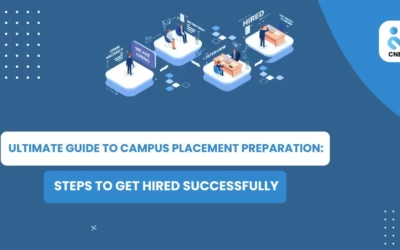How to Get an Internship with No Experience: Tips to Land Your First Role
Struggling to get your first internship with no experience? Learn how to create a strong resume, network effectively, and build skills that make you stand out—plus tips on internship certificates and common mistakes to avoid.

Introduction
Imagine this—you’re eager to kickstart your career, but every internship listing demands prior experience. Sounds frustrating, right? You’re not alone. Many students and fresh graduates face this challenge.
The good news? You can land an internship with no experience. The key is to highlight your potential, take initiative, and target the right opportunities.
In this guide, we’ll walk you through actionable steps to land your first internship, avoid common mistakes, and leverage your experience to build a strong career foundation.
1. Build a Resume That Stands Out (Even Without Experience)
Think you have nothing to put on your resume? Think again! Use this strategy:
-
Highlight Academic Achievements: Mention relevant coursework, academic projects, and GPA (if strong).
-
Include Volunteer Work and Extracurriculars: These show initiative, leadership, and responsibility.
-
List Personal Projects or Freelance Work: Even a small blog, portfolio, or community project can demonstrate real skills.
-
Emphasize Transferable Skills: Showcase communication, teamwork, problem-solving, and time management.
Keyword Tip: Use terms like “entry-level resume,” “skills for resume,” and “resume with no experience” throughout your content.
2. Write a Compelling Cover Letter
A strong cover letter can bridge the gap when your resume lacks professional experience.
What to Include:
-
Your enthusiasm for the role
-
How your academic background or personal projects align with the position
-
Key soft skills such as adaptability, creativity, or critical thinking
-
A short anecdote or reason why you’re passionate about the field
Pro Tip: Personalize each cover letter instead of using a generic one.
3. Tap Into the Power of Networking
More than 70% of internships are found through networking. Don’t overlook it!
Where to Start:
-
Talk to professors and alumni
-
Attend campus job fairs and webinars
-
Join LinkedIn groups in your field
-
Reach out to family or friends who may have connections
Remember: A simple message on LinkedIn can open doors.
4. Target Startups and Small Companies
Large corporations receive thousands of applications—but startups? They’re more flexible and value passion over a polished resume.
Startups often provide hands-on experience and quicker growth opportunities, even if unpaid. Don’t overlook them.
5. Gain Practical Skills Through Online Courses
Use platforms like:
Earn certifications in areas like:
-
Digital marketing
-
Graphic design
-
Programming languages (Python, Java, etc.)
-
Data analytics
These certificates can strengthen your resume and show initiative.
6. Create Your Own Experience
If no one gives you an opportunity, create one yourself.
Ideas:
-
Start a blog
-
Contribute to open-source projects
-
Launch a YouTube channel
-
Take freelance gigs on Fiverr or Upwork
These experiences show you’re a go-getter and add real value to your portfolio.

7. Prepare for Interviews with Confidence
When you’re called for an interview:
-
Research the company
-
Practice common questions like “Why should we hire you?” or “What can you bring to the team?”
-
Show genuine interest in learning and growing
-
Highlight your relevant projects and soft skills
Search for “how to face an interview confidently” and use mock interviews to prepare.
8. Common Internship Mistakes to Avoid
Using the Same Resume Everywhere: Customize for each application.
Ignoring Networking Opportunities: Don’t rely only on job portals—connect with people.
Being Unprepared for Interviews: Practice is key.
Focusing Only on Paid Internships: Unpaid roles can lead to great future opportunities.
9. Don’t Forget to Request an Internship Certificate
Once your internship ends, ask for an Internship Certificate. This should include:
-
Your name and designation
-
Duration of the internship
-
Key responsibilities and achievements
-
Company seal and signature
10. Why an Internship Certificate Matters
-
Validates Your Experience: Shows future employers your work history is real.
-
Boosts Your Resume: Adds credibility even if the internship was unpaid.
-
Builds Confidence: Helps you apply to full-time roles with proof of prior work.
-
Supports Higher Education Applications: Especially for MBA or foreign university admissions.
Conclusion
Landing an internship with no experience might feel challenging, but it’s entirely possible with the right mindset and action plan. Focus on building your skills, crafting a solid resume, networking smartly, and seizing any opportunity to learn.
Want expert guidance to secure your first internship?
Seminaries is here to help. Connect with our career advisors for personalized tips and exclusive internship listings tailored to your goals.



0 Comments